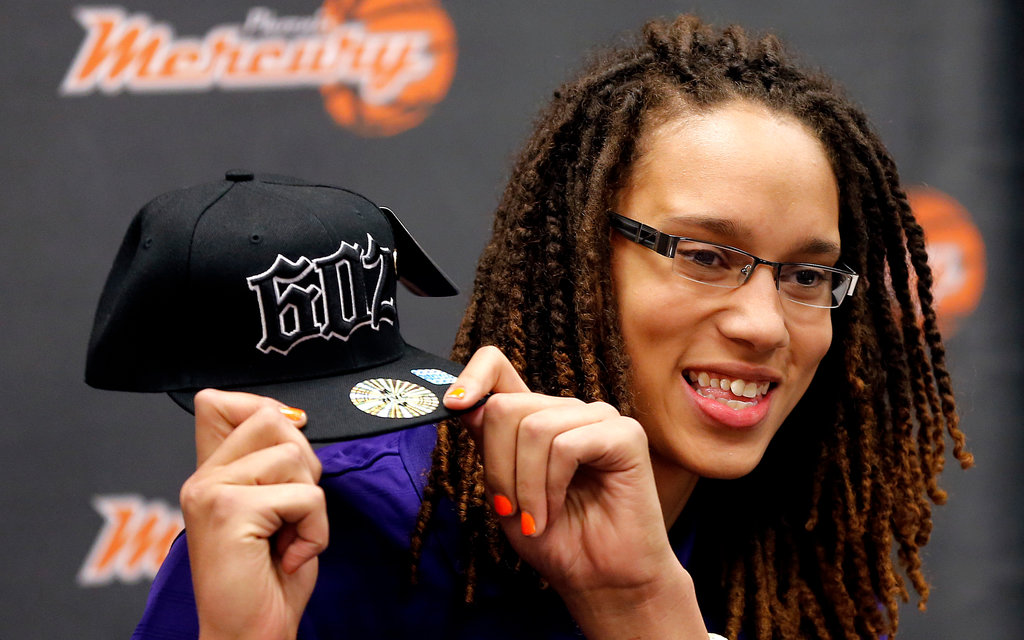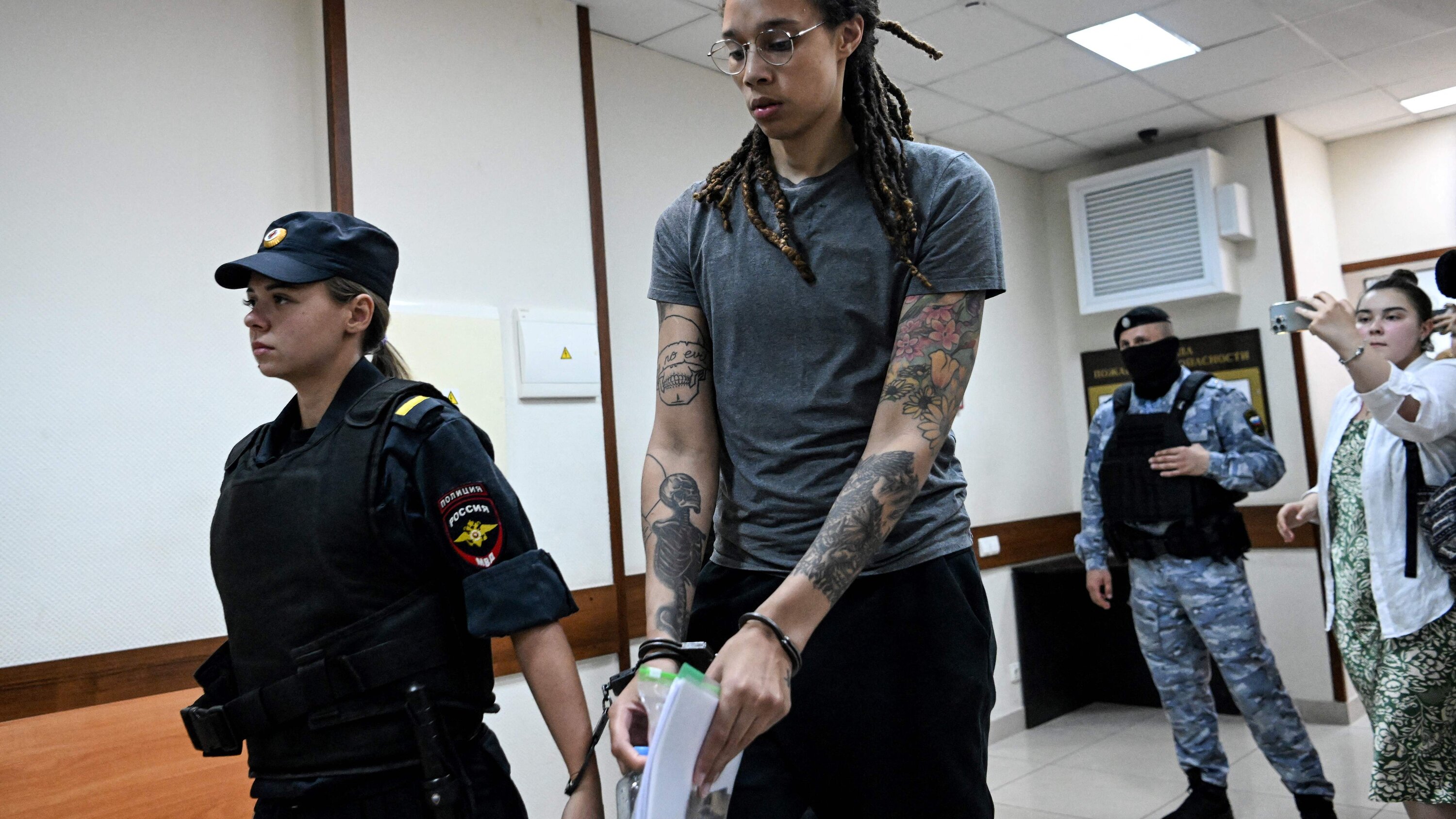Is Brittany Griner A Trans? Understanding Her Identity And Impact
In recent years, the conversation surrounding gender identity and representation has grown significantly, leading many to question the identities of public figures. One such figure is Brittany Griner, a prominent WNBA player known for her impressive skills on the court and her advocacy for social issues. As discussions around gender identity become more prevalent, many fans and followers have asked, "is Brittany Griner a trans?" In this article, we will explore Griner's journey, her identity, and the impact she has made in the sports world and beyond.
Griner's life and career have been marked by challenges and triumphs that go beyond basketball. As a black, queer woman in a sport that has historically struggled with inclusivity, she has become a beacon of hope for many. The question of her identity often arises from a desire to understand how social norms and expectations shape the lives of athletes and celebrities. By examining her biography and personal experiences, we can gain insight into the complexities of her identity and the broader conversations around gender and sexuality.
As we delve deeper into the topic of "is Brittany Griner a trans," it is essential to acknowledge the cultural and societal factors at play. The sports community is evolving, and with it, the need for representation and advocacy for marginalized groups is becoming increasingly crucial. This article will take a closer look at Griner's life, her contributions to the LGBTQ+ community, and the ongoing dialogue regarding her identity.
What is Brittany Griner's Biography?
Brittany Griner was born on October 18, 1990, in Houston, Texas. She is a professional basketball player who has gained recognition for her incredible height, strength, and skill on the court. Griner played college basketball at Baylor University, where she led her team to a national championship in 2012 and was named the NCAA Tournament's Most Outstanding Player. After college, she was drafted first overall by the Phoenix Mercury in the 2013 WNBA Draft, becoming a prominent figure in women's basketball.
| Full Name | Brittany Griner |
|---|---|
| Date of Birth | October 18, 1990 |
| Place of Birth | Houston, Texas, USA |
| Height | 6 ft 9 in (2.06 m) |
| Position | Center |
| WNBA Team | Phoenix Mercury |
| College | Baylor University |
Is Brittany Griner a Trans? Understanding Her Gender Identity
One of the most pressing questions surrounding Brittany Griner is, "is Brittany Griner a trans?" To clarify, Brittany Griner identifies as a cisgender woman. She has been open about her sexual orientation as a member of the LGBTQ+ community, and she has actively advocated for LGBTQ+ rights and representation in sports. Griner's identity is an essential aspect of her life, and she has used her platform to raise awareness about the challenges faced by queer individuals, particularly in the realm of sports.
What Role Does Gender Identity Play in Sports?
Gender identity plays a significant role in the world of sports, often influencing how athletes are perceived and treated. The landscape of gender in athletics is continuously evolving, with more athletes openly discussing their identities and experiences. The inclusion of transgender athletes in sports has sparked debates about fairness, competition, and representation. Brittany Griner's story serves as a reminder of the importance of understanding and respecting each individual's identity, regardless of gender.
How Has Brittany Griner Advocated for LGBTQ+ Rights?
Brittany Griner has been a vocal advocate for LGBTQ+ rights throughout her career. She has participated in numerous campaigns and events aimed at raising awareness about issues affecting the LGBTQ+ community. Some of her efforts include:
- Speaking out against discrimination and inequality in sports.
- Supporting organizations that work towards LGBTQ+ rights and representation.
- Sharing her personal experiences to inspire others in the community.
- Participating in pride events and celebrations.
What Challenges Has Brittany Griner Faced as a Queer Athlete?
As a queer athlete, Brittany Griner has faced various challenges throughout her career. These challenges highlight the need for greater acceptance and understanding within the sports community. Some of the difficulties she has encountered include:
- Facing discrimination and prejudice from fans and opponents.
- Struggling with public perception and stereotypes surrounding her identity.
- Dealing with the pressure to conform to traditional gender roles in sports.
- Overcoming personal struggles related to her identity and mental health.
How Has Brittany Griner's Story Impacted the LGBTQ+ Community?
Brittany Griner's journey has had a profound impact on the LGBTQ+ community, particularly within sports. Her openness about her identity has inspired many to embrace their true selves and advocate for their rights. Griner's achievements and advocacy work have helped raise awareness about the challenges faced by queer athletes, fostering a more inclusive environment in sports. By sharing her story, she has become a role model for countless individuals who face similar struggles.
What Can We Learn from Brittany Griner's Experience?
Brittany Griner's experience serves as a powerful reminder of the importance of acceptance and understanding in our society. Here are some key takeaways from her journey:
- The need for increased representation of marginalized groups in sports.
- The importance of creating inclusive environments for athletes of all identities.
- How sharing personal stories can foster understanding and support.
- The significance of advocacy and activism in promoting equality and social justice.
Is Brittany Griner a Role Model for Future Generations?
Given her accomplishments and advocacy work, many consider Brittany Griner a role model for future generations. Her dedication to promoting LGBTQ+ rights, coupled with her success in basketball, has paved the way for more inclusive representation in sports. As conversations around gender identity continue to evolve, Griner's story will undoubtedly inspire young athletes to embrace their identities and fight for their rights.
Conclusion: Understanding Brittany Griner's Identity
In conclusion, the question "is Brittany Griner a trans?" can be answered with a clear understanding of her identity as a cisgender woman and LGBTQ+ advocate. Her journey has not only shaped her life but also contributed to the ongoing dialogue about gender identity and representation in sports. As we continue to learn from figures like Griner, it is essential to foster environments that celebrate diversity and inclusion, paving the way for a brighter future for all athletes, regardless of their identity.



ncG1vNJzZmixn6PAtr7IZqWeq6RjsLC5jpycpZ2Sp7a1xZBuZqKrXZe%2FqsDTmqWyZZentq%2Bx0WaYZqyilru0esetpKU%3D